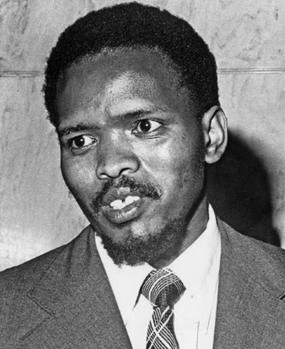MONDAY, 1 AUGUST 2022
Was the South African government policy known as Apartheid evil, as many people think it was?
The idea of separate development, that Zulus have their own territory that has historical value for them, with their own government that makes decisions on matters that are important to Zulus, or that solves problems in ways that are consistent with the values with which most Zulus identify, with Zulu cultural organizations and schools and universities, and then the same for Xhosas and Sothos and so on, is either a workable idea, or not realistic considering the realities of the South African economy and wider society.
But is it an evil idea? I reckon, no.
The evil entered the story with how the policy was carried out in practice, the way in which the National Party government reacted to resistance to their policy, and the deeply biased thinking that served as the foundation of the ideology.
The policies implemented by the government eventually included the forced removal of communities from neighbourhoods where people of different races had lived together for decades; the requirement of identification documents that only black adults had to carry on their person, without which they could be arrested; laws that prohibited black people from entering urban areas unless they could prove they were employed in the area; a ban on marriages between members of different population groups; a restriction on where black entrepreneurs could open businesses; and the segregation of public areas and facilities, public transport, as well as schools and universities, with the result that black South Africans generally experienced a significantly lower quality of life than white South Africans.
How did the government respond to opposition to their policies? They responded with lethal force against protests, jailed the leaders of the resistance, and banned civil rights organisations.
The most nefarious of the Apartheid government’s deeds, however, was to apply a type of psychology and a type of philosophy that told the adult black population: You are less of a person because you are black. You are worth less than the white man and woman on the other side of town who are just as old as you, just as smart (or stupid) as you, who also love their children. You’re worth less than the white people – because you’re black. Education in schools also made it clear to black children that their futures were not as engineers and dentists and architects, but primarily as labourers and servants of white people. Hendrik Verwoerd, Minister of Native Affairs from 1954 to 1958 and later Prime Minister of South Africa, said about the education of black children: “[There is] no place for the Bantu in European society above the level of certain forms of labour. What is the use of teaching mathematics to the Bantu child if it cannot be used in practice?”
Not only were black children neglected in their formal education, adult black men and women were also systematically reminded of their second-class status in South African society. Young white police constables could stop middle-aged black men and women in the street and demand to see their “papers”. Black children were given Afrikaans or English names that were easier for white people to pronounce, and if the adult black worker did not have an Afrikaans or English name, he or she was given one. White men had to be addressed as “Boss”, even if the black man or woman did not work for the white man. Until as recently as the late nineteen-eighties, black men and women were not allowed to use public transportation intended for whites or were only allowed to use third-class seats.

All these measures were applied to entrench the idea that the white person was the master and the black person the servant. When black intellectuals like Steve Biko from the sixties onwards wanted to promote the idea of Black Pride, when they wanted to popularise the idea that an adult black man and woman should raise their heads and insist on dignified treatment – that they should indeed believe that they were the equal of their so-called white masters, these leaders were brutally oppressed. Steve Biko himself was first intimidated, then arrested, and finally assaulted so badly that he succumbed to his injuries. His offense? A radical message to both white and black: “[As] a prelude whites must be made to realise that they are only human, not superior. Same with Blacks. They must be made to realise that they are also human, not inferior.” And: “The first step therefore is to make the black man come to himself; to pump back life into his empty shell; to infuse him with pride and dignity, to remind him of his complicity in the crime of allowing himself to be misused and therefore letting evil reign supreme in the country of his birth.”
It is at this point – where you want to crush the spirit of someone because he disagrees with your political policies, to want to break his will so that he will never again think of rising against you, that any reasonable person should realise he had crossed over to the Dark Side: Welcome to the Land of Lucifer.
______________________